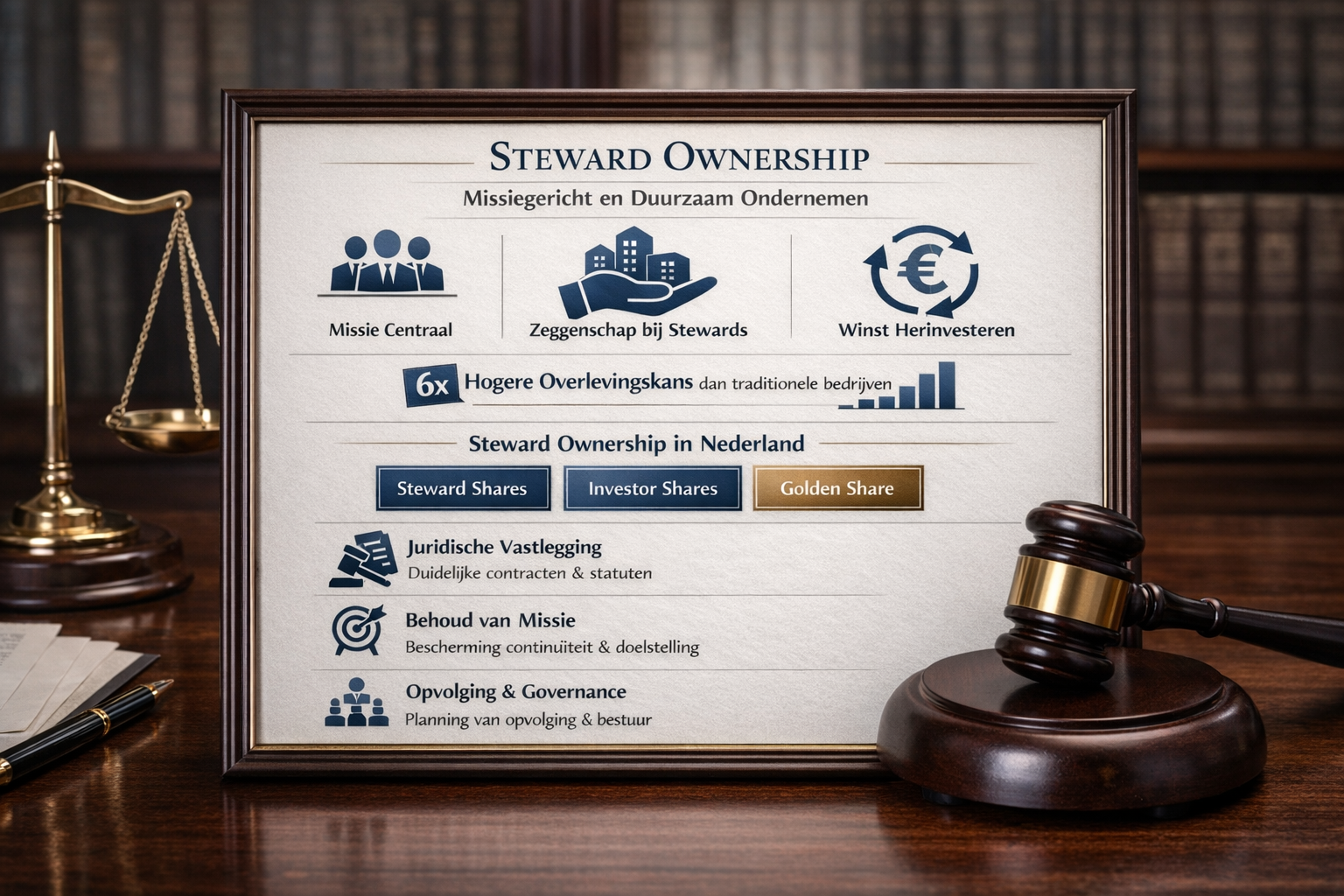Articles & Publications
Our insights
Home > Articles & Publications
Article
- 29-12-2025
Interest in sustainable entrepreneurship is growing rapidly. Entrepreneurs are looking for ways to combine financial health with social impact and long-term continuity. While companies such as Patagonia can safeguard their mission through the American Public Benefit Corporation, a comparable legal form is lacking in the Netherlands. As a result, entrepreneurs must protect their mission through articles of association and governance structures, which often leads to tensions. Increasingly, companies are therefore opting for steward ownership, a model that places mission-driven control and sustainable value creation at its core.
Article
- 22-12-2025
An increasing number of companies offer deferred payment options, such as “pay later.” Under the new EU Consumer Credit Directive (EU 2023/2225), these models may be classified as regulated financial services starting 20 November 2026. As a result, businesses may become subject to licensing requirements, oversight by the AFM, and additional obligations such as age verification, creditworthiness assessments, and linking to the credit registry (BKR). Failure to comply can lead to risks such as fines, penalty payments, and reputational damage. It is therefore important to assess payment processes now and make adjustments where necessary.
Publication
- 08-12-2025
In the December 8, 2025 edition of Het Financieele Dagblad, the Managing Partner of ACG International highlights that many platforms face withheld funds by PSPs. Not due to errors, but because platform contracts fail to meet PSP compliance requirements. As a result, payments can be blocked and the entire chain can stall. Edith Nordmann explains how platforms can prevent these issues.
Article
- 03-12-2025
Supplementary law in international agreements can affect existing liability rules. Find out more in our article.
Article
- 21-11-2025
Dutch regulators warn that banks are too dependent on non-EU technology providers. At the same time, the potential U.S. acquisition of Solvinity — the company that manages critical government data such as DigiD — raises concerns about data security and digital sovereignty. Financial institutions must take these strategic and technological risks seriously and implement appropriate measures
Publication
- 06-10-2025
ACG International's Edith Nordmann and Thomas Klaarenbeek shared their insights on managing ESG, compliance risks, navigating export controls, etc. in the Lexology Panoramic Next edition.
Article
- 20-08-2025
Can customers always access their money? A recent court ruling shows banks may terminate accounts due to compliance risks. Learn about the right to a basic payment account, AML obligations, and the lack of protection for businesses.
Article
- 07-07-2025
A positive reference letter is more than a formality when specific agreements have been made. By law, an employer is only required to include objective facts, such as the employee’s role and duration of employment. Additional positive remarks are only mandatory if explicitly agreed upon, for example, in a settlement agreement.
Article
- 06-05-2025
New European anti-money laundering regulations tighten internal obligations and governance:
In addition to a broader scope, the requirements themselves are becoming more stringent. The AMLR mandates that institutions must have a comprehensive and up-to-date AML/CFT compliance framework in place, including documented internal procedures, risk assessments, and control mechanisms.

